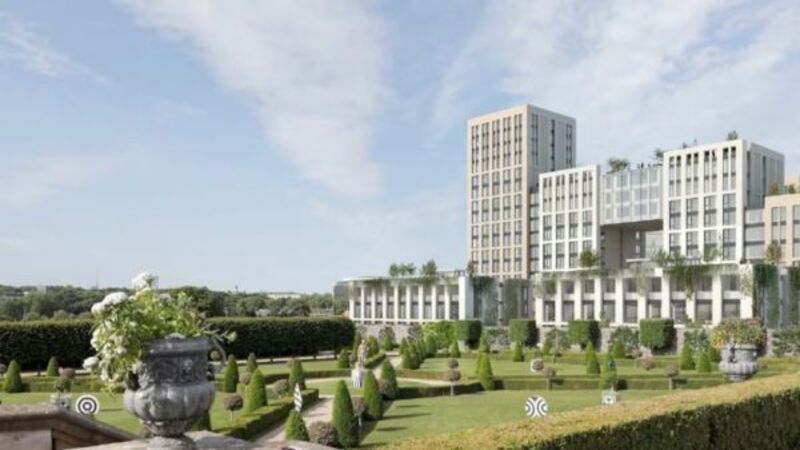Approval for Dublin apartment scheme ruled unlawful after court challenge

High Court reporters
An Bord Pleanála did not properly apply the law in considering that a proposed apartment scheme would have an adverse effect on the protected “cone of vision” to and from the Royal Hospital Kilmainham in Dublin, the High Court has ruled.
Ms Justice Emily Farrell found that the planning authority identified that the 399-apartment build, including an 18-storey block, would “impinge marginally” on the panoramic view between the former hospital, now art museum, and the Phoenix Park.
The board should have recognised that such an impingement qualifies as a material breach of the objectives of the local development plan, she said. The board is allowed to permit a development that contravenes the local plan, but only if it invokes a specific procedure, which it did not do in this instance.
She was not satisfied An Bord Pleanála appropriately applied the development plan when considering the planning application for this scheme.
Her findings come in a court challenge brought by architect Paul Leech, who lives in an apartment block adjacent to the former hospital, and former Irish Times journalist Frank McDonald, of Temple Bar.
Their primary request is for an order overturning the board’s approval of the project.
Ms Justice Farrell outlined her decision orally in court but said she will provide a detailed written judgment on the matter next week and will hear from the parties in three weeks’ time.
In legal documents, Mr Leech and Mr McDonald pointed to concerns raised by a series of heritage bodies, including the Office of Public Works, the Heritage Council and An Taisce, about the development’s potential impact on the museum and its gardens.
Mr Leech claimed the proposed development was not sensitive to the architectural integrity and sensitivity of the museum, which he described as a building of “world importance in terms of its architectural quality and undeniably Ireland’s most important 17th-century public building”.
Mr McDonald said he was “appalled” by the board’s “illogical and manifestly unreasonable” decision.
In his affidavit he included quotes from his book on the Dublin urban landscape, in which he describes the old hospital as the First Duke of Ormonde’s “third lasting legacy”.
He said the 56-metre tower confirmed his “worst fears” about the impact of 2018 urban building height guidelines, which he said enables an “unprecedented free-for-all” that will see Dublin’s relatively low-rise skylines being “sacrificed on the altar of profit or hubris”.
Mr Leech also said the proposed scheme is to be constructed on “vital” green areas that were used “intensively” by residents during Covid-19 lockdowns.
Their case was contested by An Bord Pleanála and the developer, who was joined as a notice party.









